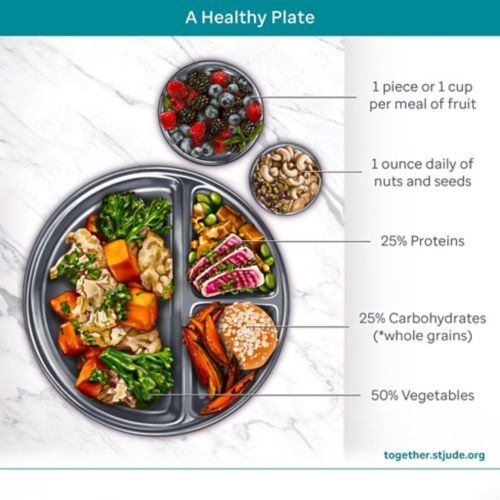Eating fruits, vegetables, and whole grains may lower your risk of health conditions related to aging, according to a recent St. Jude LIFE study.
Some childhood cancer survivors have an increased risk of developing age-related health problems much earlier than people who did not have childhood cancer. These conditions may include heart disease, lung problems, weak bones, memory problems, or second cancers. Developing age-related health problems at a younger than usual age is called premature or accelerated aging.
Eating a plant-based diet may help reduce the risk of premature aging, says Yikyung Park, ScD, of Washington University School of Medicine, one of the study’s leaders. In particular, dark green vegetables and nuts/ seeds were linked to a lower risk of premature aging.
The study also found that eating refined grains can increase the risk of developing age-related conditions early. Refined grain foods include white flour, corn grits, white bread, and white rice.



